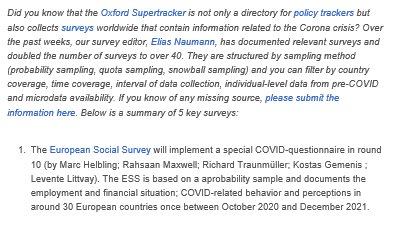
"Advanced economies could use more progressive income taxes, inheritance & property taxes, and taxes on "excess" corporate profits to help reduce inequalities exposed by the pandemic."
"Wealth taxes were another option if other measures did not suffice."
#IMF #FiscalMonitor 1/3
"Wealth taxes were another option if other measures did not suffice."
#IMF #FiscalMonitor 1/3

"Given that public support for better access to basic services, financed through higher taxes, has been strong and is likely rising with the pandemic, governments need to announce comprehensive policy packages,.., that give everyone a fair shot & strengthen trust in governments." 

"Large preexisting inequalities have worsened the effect of the COVID-19 pandemic, while the crisis, in turn, has escalated these inequalities."
"COVID-19 recovery contributions and 'excess' corporate profits taxes could be considered"
imf.org/en/Publication…
"COVID-19 recovery contributions and 'excess' corporate profits taxes could be considered"
imf.org/en/Publication…
• • •
Missing some Tweet in this thread? You can try to
force a refresh









